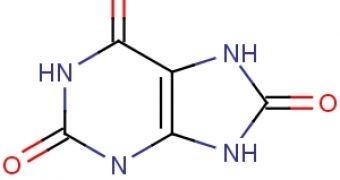Two new genes, along with a suspected third, are believed to have a significant influence in the formation of gout in humans. According to the latest research, the presence of all three genes in an adult body increases the risk of developing gout by more than 40 times. In other words, they have a tremendous negative potential when combined, so researchers have already begun exploring prevention options to counteract their effects.
This was the first study to use the free extensive Web-based dataset of genetic and clinical data that was first made available to scientists in October 2007. They analyzed more than 9,300 patient records spanning 3 generations for genetic anomalies that could lead to increased presence of uric acid in the blood, the main cause of gout.
The acid tends to clog its crystals in veins and arteries, and creates blocks. This causes severe pain and swelling and, if left untreated, could affect a person's kidneys and block the joints permanently. As the most severe form of arthritis, gout affects more than 3 million people in the United States alone, making it one of the most spread diseases in the country.
The current study was made possible through support from the National Heart, Lung, and Blood Institute (NHLBI), the Netherlands Organization for Scientific Research (NWO), the National Center for Research Resources, the Boston University School of Medicine (BUSM) and the Boston University School of Public Health. NHLBI researchers say that, someday, genetic testing could be used to detect individuals who are more prone to developing gout before the first signs of the disease set in.
Preemptive measures could be developed to prevent the formation of uric acid crystals in the blood stream, through the use of special drugs currently available. The main challenge for scientists is to develop a feasible technique for analyzing the human genome, so as to be able to recognize the genes they want to identify out of countless others.

 14 DAY TRIAL //
14 DAY TRIAL //